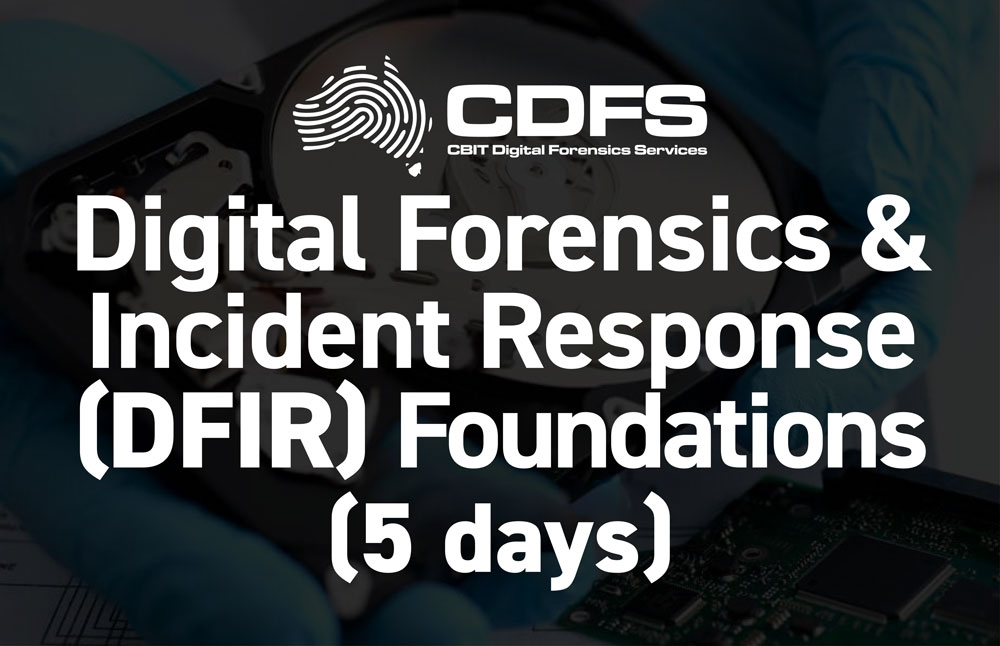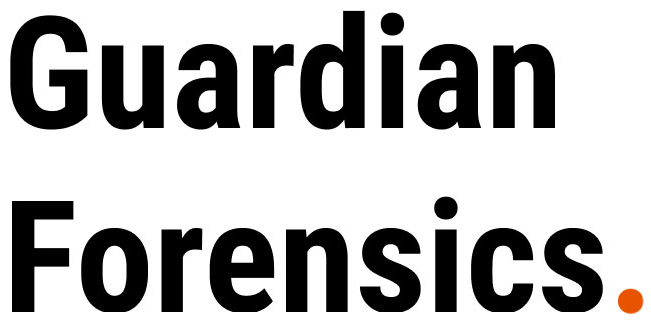
Digital Forensics & Incident Response (DFIR) Foundations
(5-DAY INSTRUCTOR LED COURSE)
COURSE SUMMARY
Digital Forensics & Incident Response (DF & IR) Foundations Class is a practical, standards-aligned training experience designed to equip teams with the end-to-end skills to investigate, respond, and recover from cyber incidents.
Why This Class Matters
- Cut response times and contain breaches faster using structured, field-proven methods.
- Build full-scope investigation skills, from evidence collection to legal-grade reporting.
- Aligned with NIST SP 800-61 Rev. 3 for real-world, defensible processes.
- Shift from reactive fixes to strategic improvements post-incident.
What Participants Will Learn
- Capture and preserve volatile data under pressure
- Perform forensic analysis with evidentiary integrity
- Navigate all six NIST response phases
- Institutionalise improvement through operationalised frameworks
Using leading industry tools such as Cyber Triage & X-Ways, this 5-day course combines theory and practical exercises to build your capability in Digital Forensics and Incident Response.
Tools Used During the Class
- Cyber Triage
- X-Ways Forensics
- USB Detective
- Python Scripts
- PowerShell Scripts
Target Audience
- Those wishing to develop skills in DF and IR.
- Existing DF or IR team members seeking to cross-skill.
- Those seeking technical skills and knowledge to build a capable DFIR team.
Structure
Day 1
- Introduction to incident response.
- Event, Incident & Profiling.
- User & Entity Behaviour Analytics.
- Baselining & IR Incident Handling Life Cycle.
- IR Definitions & Case Studies.
Day 2
- Introduction to Forensic Science and Digital Forensics.
- Evidence and the Digital World.
- Forensic Acquisition of Data.
- Digital forensic principles, artefacts and attribution.
- Introduction to data structures and file systems.
Day 3
- Introduction to Network & Memory Forensics.
- Case study on forensic data acquisition and basic examination.
- End point – Windows OS forensics and IR internals.
Day 4
- Incident response planning, organisation, and preparing the Computer Security Incident Response Team.
- Detection strategies and systems.
- Response strategies.
- Recovery, maintenance and investigations.
- Disaster recovery planning, implementation and contingencies.
- Business continuity and crisis management.
Day 5
- Cyber Triage
- Case studies
- Reporting and presentation.
An online assessment will be available to all students that must be completed within 6 weeks after the class.




